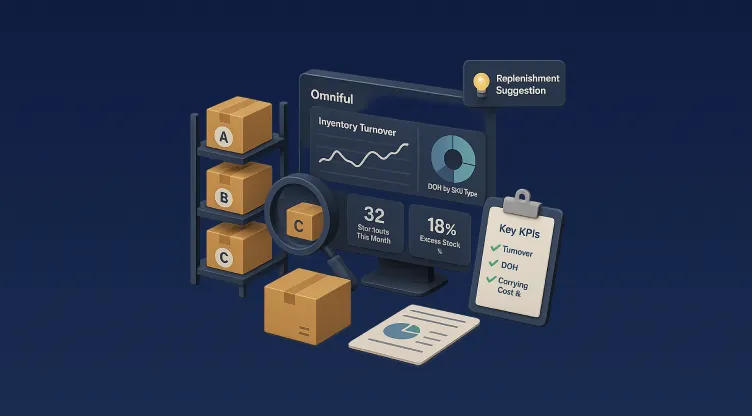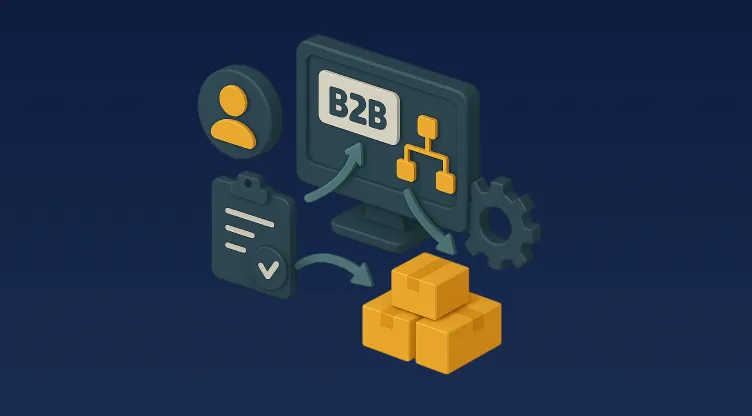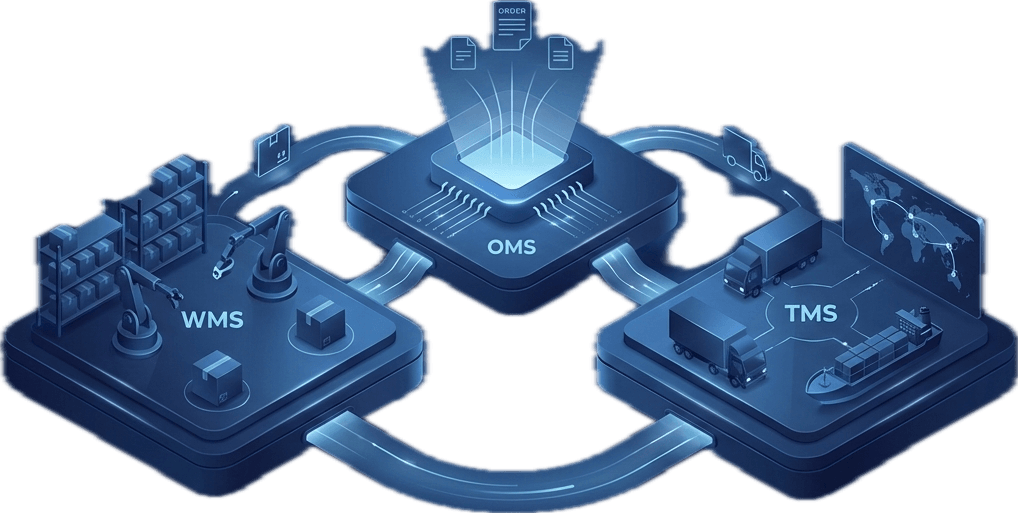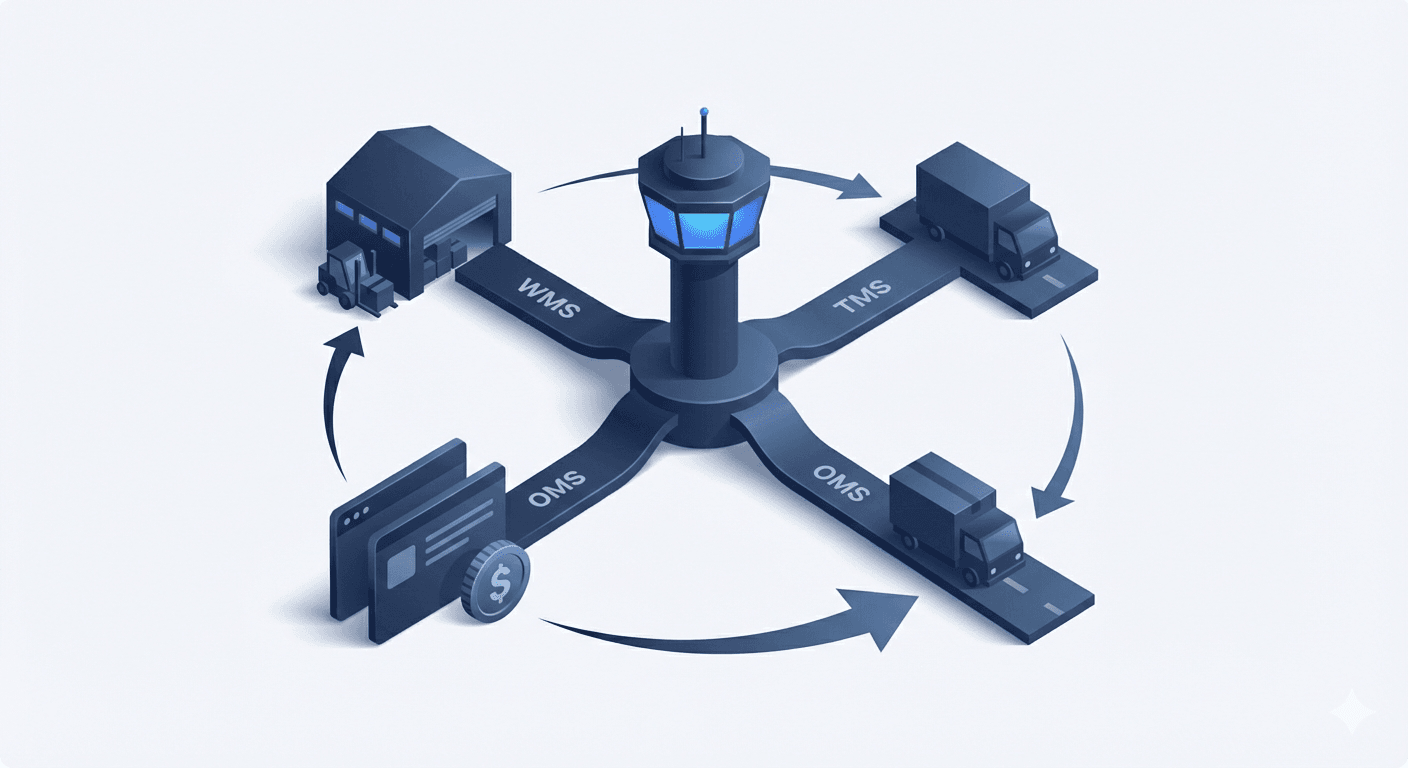Order Splitting & Routing: How Smart Fulfilment Boosts Efficiency & Reduces Costs

Table of Contents
Quick Bites Before You Dive In
- Automatically split large orders across multiple hubs to reduce delivery times and enhance efficiency
- Route items to the nearest warehouse or store to cut costs and improve inventory control
- Strengthen customer satisfaction with partial fulfilment and real-time order updates
- Reduce logistics expenses with intelligent order distribution logic
- Ideal for omnichannel businesses in MENA handling high order volumes or operating dark store networks
Introduction: The Shift Toward Smart, Automated Fulfilment
Retail and e-commerce in the MENA region are undergoing a seismic shift. With increasing customer expectations for same-day delivery and rising logistics costs, businesses are pressured to rethink their fulfilment strategies. Central to this transformation is order splitting and intelligent routing, a feature that empowers businesses to meet growing demand with precision and agility.
Picture this: a customer places an order that includes three products. One item is available in a Dubai warehouse, the other two in a Riyadh dark store. Instead of holding the entire order for consolidation or pushing it from a distant hub, an intelligent order management system (OMS) splits the order automatically and routes it to the most optimal fulfilment points — minimising both time and cost.
This is no longer a future-facing capability — it’s the standard for businesses serious about growth in the Gulf and broader MENA region.
What Is Order Splitting and Routing?
Order splitting is the process of breaking a single customer order into multiple sub-orders based on inventory availability across different hubs (warehouses, dark stores, retail outlets).
Order routing refers to directing these sub-orders to the nearest or most efficient fulfilment centre using a predefined set of rules — often powered by AI, geofencing, and dynamic logistics algorithms.
Why It Matters
- Inventory Control: Matches stock with demand in real-time, optimising supply chain flow.
- Faster Deliveries: Shorter distances = lower shipping times.
- Cost Efficiency: Reduce expensive cross-region shipping or emergency replenishments.
- Scalability: Critical for high-growth D2C, omnichannel, and 3PL models.
The Power Behind the Process: How It Works in a MENA Context
Real-Time Inventory Visibility Across Hubs
For effective order routing, your OMS must sync inventory data across all storage points in real time. In markets like Saudi Arabia, where regional inventory silos have traditionally slowed operations, real-time visibility bridges the gap.
Take Omniful’s inventory control module, which tracks multiple inventory states — available, reserved, on-hand, and in transit. By integrating this with a smart routing engine, orders can be split on the fly based on stock proximity and availability.
Geolocation-Driven Routing Rules
Routing isn’t random. In high-demand areas like Riyadh or Jeddah, geofencing is used to route orders to hubs based on customer location, traffic data, and delivery zone mapping. For example:
- Orders within 10 km radius → route to nearest dark store
- Orders outside metro limits → route to regional warehouse with fastest SLA
AI-Powered Fulfilment Decisions
Advanced OMS platforms like Omniful allow users to set custom rules based on inventory thresholds, SKU locations, and even SKU priority tags. This AI-driven logic ensures the right product is shipped from the right place — with zero manual input.
Use Case: Why Order Splitting & Routing Is a Game-Changer
D2C Brands in Saudi Arabia
A fast-growing cosmetics brand in Riyadh relies on dark stores to ensure ultra-fast delivery. By enabling automatic order splitting, they fulfil part of an order from a nearby dark store, while less-urgent items ship from a central warehouse — keeping delivery costs low and customer expectations high.
Omnichannel Retailers in the UAE
Retailers operating across online platforms and physical stores in Dubai and Abu Dhabi benefit from routing rules that prioritise store fulfilment for fast-moving SKUs. This reduces delivery timelines while ensuring in-store inventory turns over efficiently.
3PL Fulfilment Providers
Logistics providers using a centralised fulfilment model often encounter bottlenecks. By adopting split-and-route functionality, they distribute load across multiple client hubs, ensuring SLA adherence and reducing warehouse congestion.
Key Features to Look For in an OMS for Order Routing & Splitting
Purchase Order Integration
Synchronise your procurement and inventory systems to ensure replenishments are always visible during order routing decisions.
Inventory Control with Real-Time Status
Track stock at the bin, location, and SKU level. Systems like Omniful’s offer location-based inventory control, supporting batch tracking and expiry alerts — ideal for pharma, F&B, and grocery.
Force Routing to Hubs
Allow routing overrides to prioritise certain hubs due to SLA agreements, cost constraints, or customer priority orders.
Partial Fulfilment Logic
Enable orders to be fulfilled in parts when complete inventory is unavailable. Improve speed and reduce cancellations.
Dynamic Order Tags & Conditions
Configure rules like:
- High-priority orders → Express warehouse
- SKUs tagged as fragile → Nearest retail store with better packing infrastructure
Route Optimisation via Geocoding
Auto-convert addresses to geolocation coordinates and match with delivery zones — ideal for hyperlocal delivery in dense cities like Cairo or Kuwait City.
Benefits for Supply Chain and Operations Leaders
Reduced Delivery Times
Split orders reduce time in transit by routing to the closest hub.
Improved Inventory Turnover
Stores and warehouses both get to play an active role in order fulfilment, ensuring better inventory movement and reduced deadstock.
Lower Fulfilment Costs
Minimise the need for inter-hub stock transfers or expedited shipping from distant locations.
Customer Satisfaction & Loyalty
Customers receive items faster, can track partial shipments, and get regular updates — essential for retention in competitive markets.
Overcoming Challenges with Order Splitting
| Challenge | Solution |
|---|---|
| Order fragmentation confusion | Real-time order tracking dashboards |
| Complex returns from multiple hubs | Unified return portal linked to original order |
| Inventory mismatch | Real-time sync with multi-hub inventory management |
A system like Omniful already solves many of these by integrating OMS, WMS, and TMS on a unified platform.
Real-World Proof: Success Stories from the Region
Aramex’s Fulfilment Transformation
Faced with localisation challenges, Aramex used Omniful’s smart routing and integrations with 20+ sales channels to power a 3PL fulfilment model from over 100 dark stores in Saudi Arabia. Orders are dynamically routed based on delivery zone and product type — all from a branded dashboard.
Laverne Group’s In-House Fulfilment
Previously reliant on third-party providers, Laverne, a D2C brand with 8 product lines, shifted to internal order splitting using Omniful. This reduced delivery time from 4–6 days to 2–3 hours in Riyadh — while achieving 100% inventory accuracy.
See It in Action
Want to understand how smart routing can power your fulfilment?
See Omniful in Action. Our solution empowers businesses with:
- Multi-warehouse OMS & WMS integration
- Order split and force-routing capabilities
- Geofencing & delivery zone mapping
- Real-time stock sync across e-commerce platforms
- And much more
Frequently Asked Questions
How does order splitting improve logistics performance?
It ensures items are fulfilled from the nearest available location, cutting both delivery times and transport costs.
Can partial fulfilments be tracked in real-time?
Yes. Modern OMS platforms offer granular tracking of each sub-order, regardless of fulfilment hub.
Will split orders affect customer experience?
Not if implemented correctly. In fact, customers often prefer receiving items faster, even in separate packages.
Is order routing relevant for small businesses?
Absolutely. SMEs using regional storage facilities or retail outlets can drastically cut fulfilment costs with intelligent routing.























